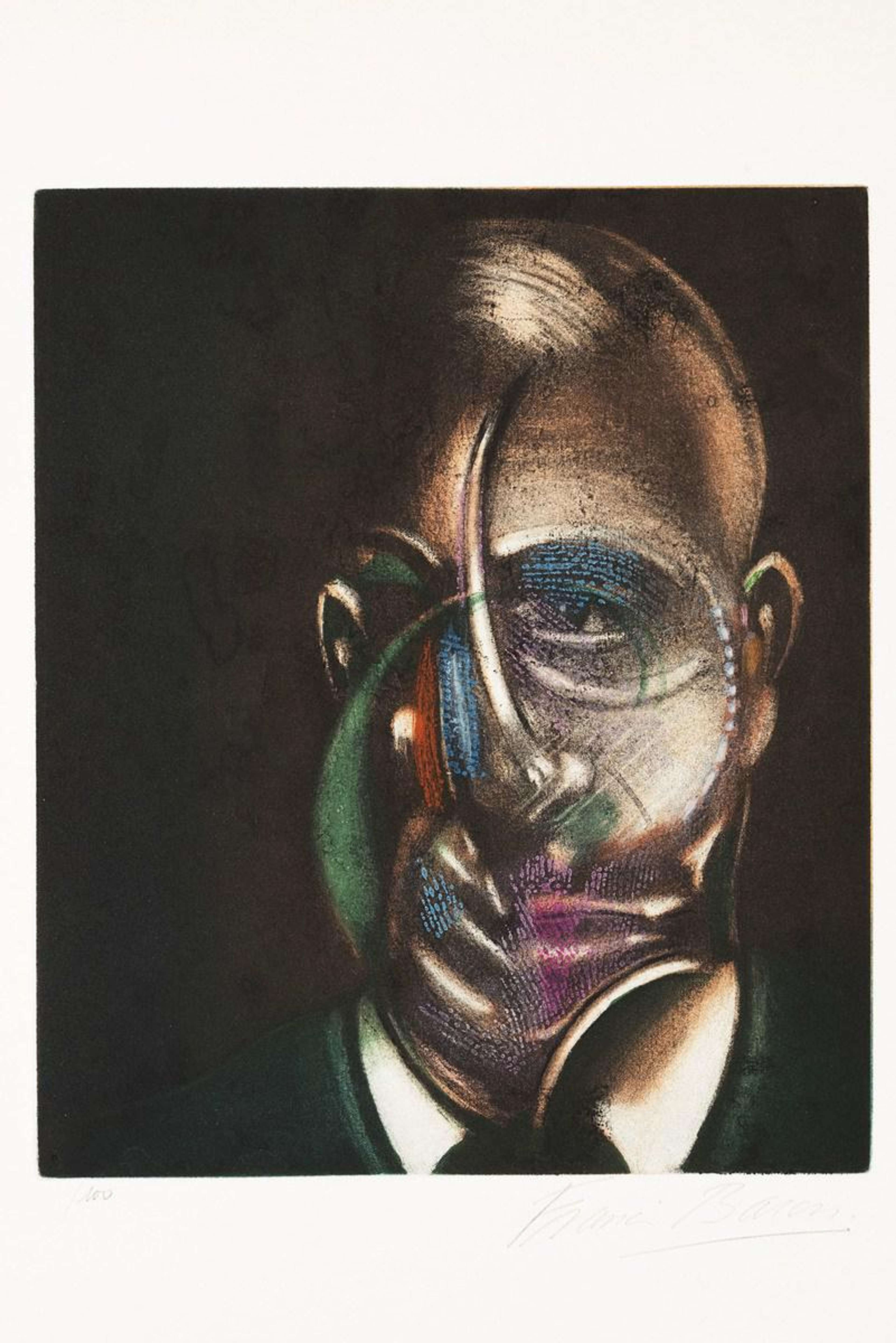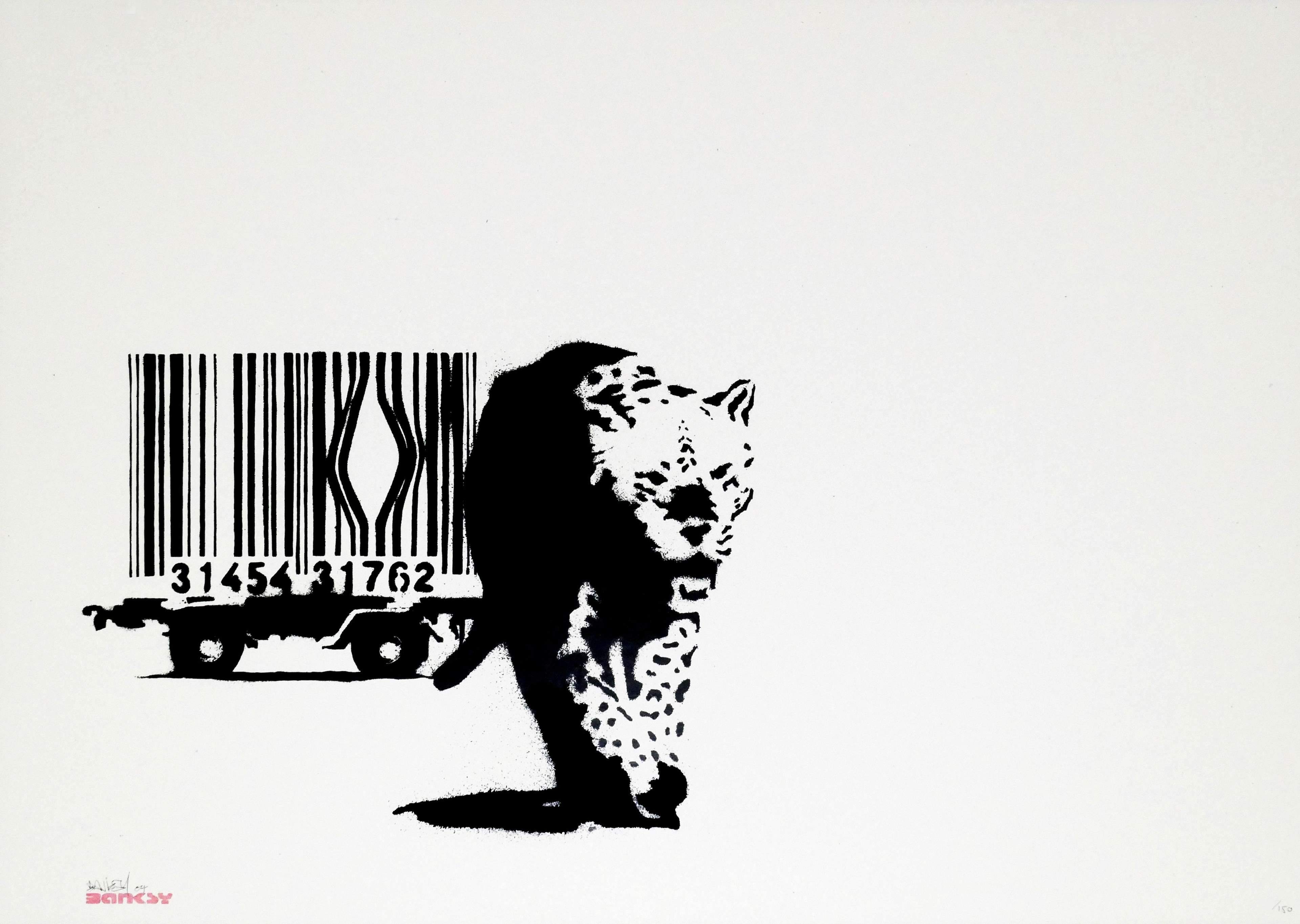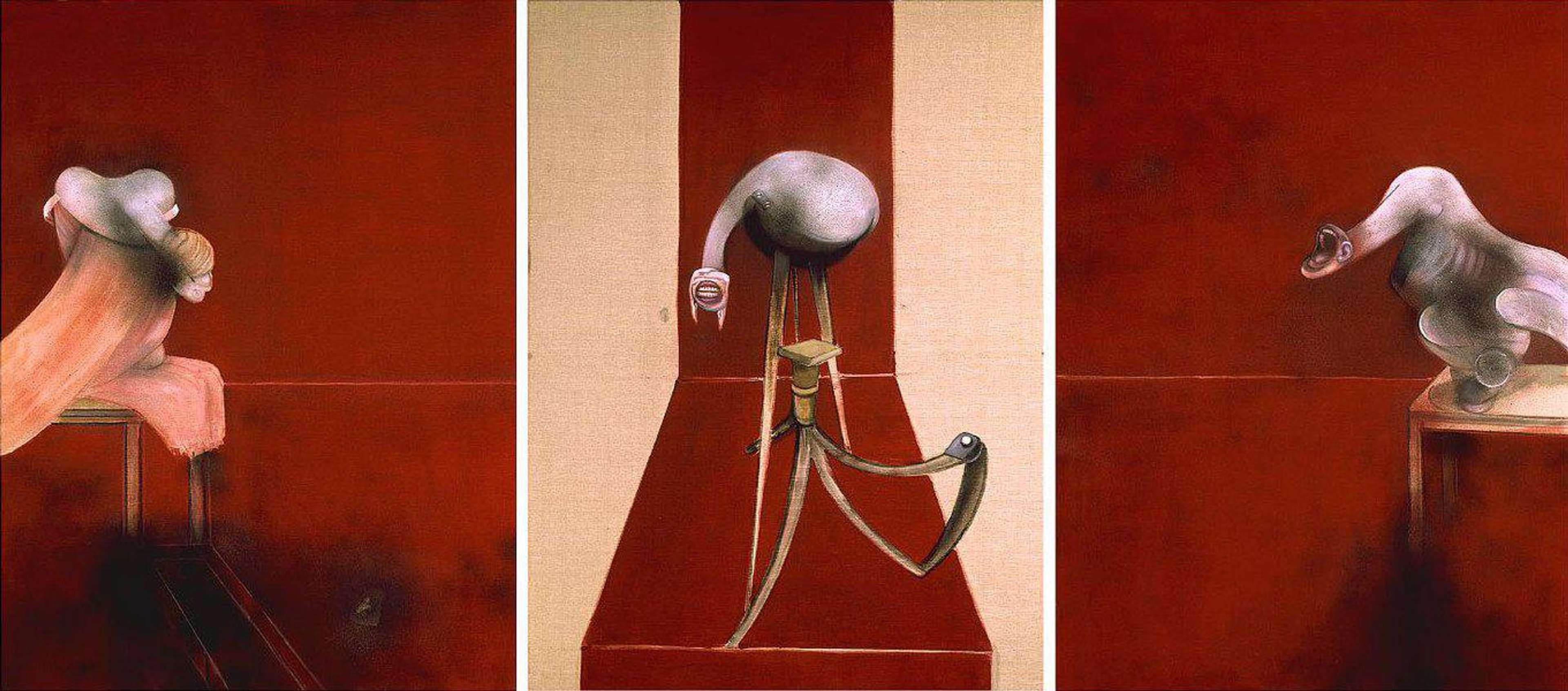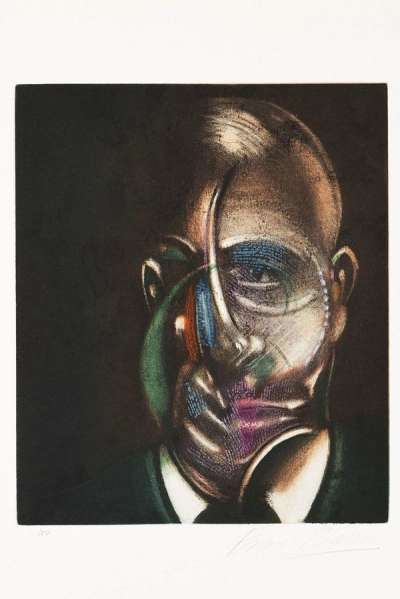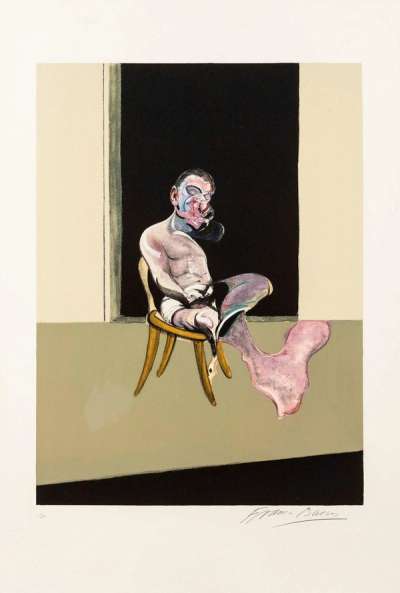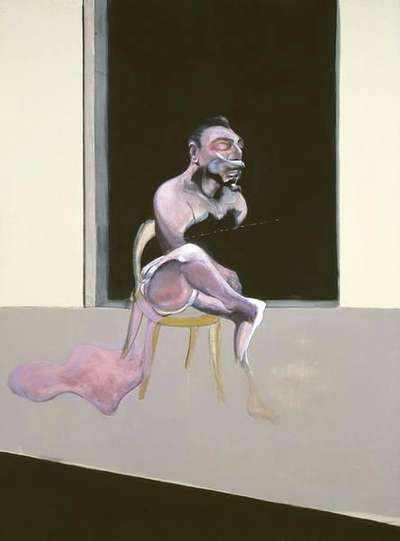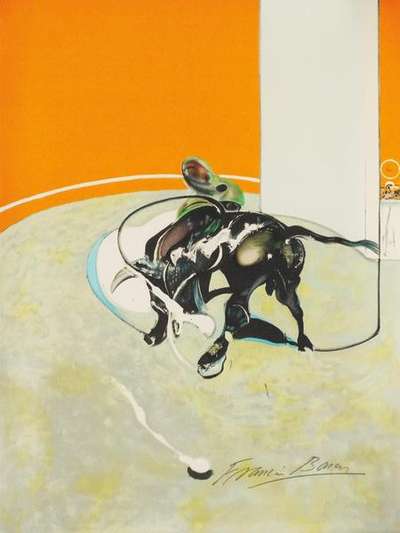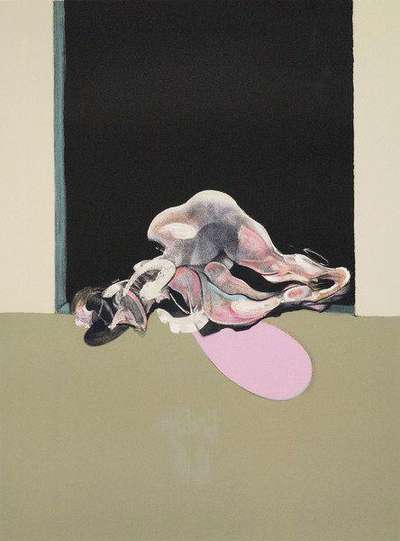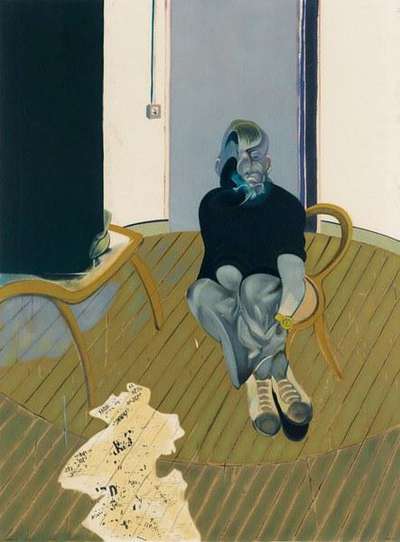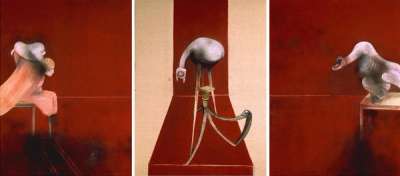A Seller’s Guide To Francis Bacon
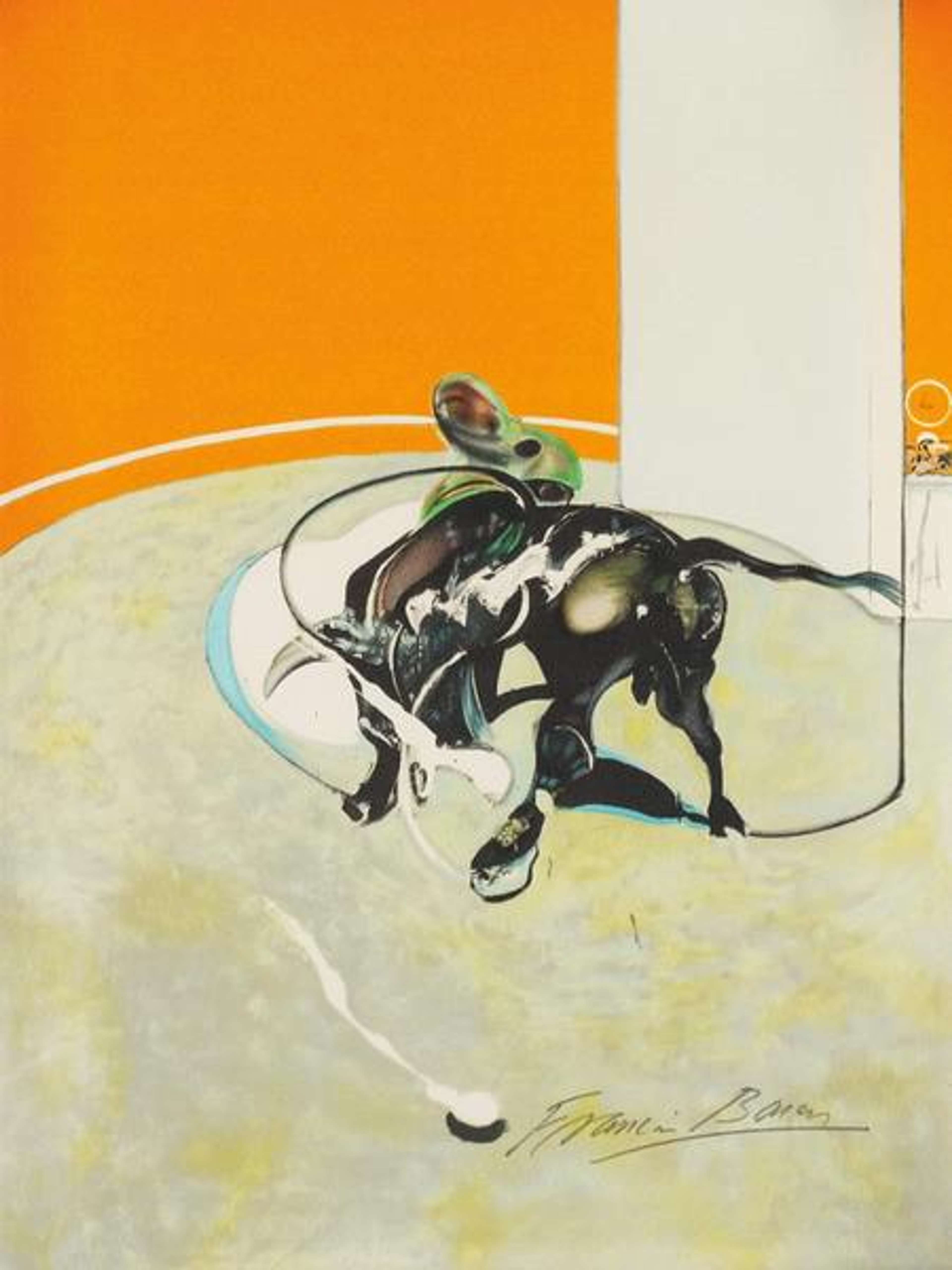 Study For Bullfight (centre panel) © Francis Bacon 1990
Study For Bullfight (centre panel) © Francis Bacon 1990Get a valuation
If you are in the market to sell a Francis Bacon print, here are a few pieces of advice before you start your journey, to make sure you sell at the right time and achieve the right price.
Looking to buy a Bacon print? Read our dedicated Francis Bacon Buyers Guide.
Over his lifetime, Francis Bacon worked with different printing workshops to release 36 of his best-known canvases as limited-edition prints. Some collaborations resulted in better-quality editions than others – thus, the value of a print by Bacon can vary greatly.
How do I work out the value of my Francis Bacon print?
Bacon’s prints can sell up to six-figure sums on the secondary market depending on the image. One of the most desirable Bacon prints is Miroir de la Tauromachie, a set of four lithographs from 1969. This portfolio included Bacon’s three paintings Study For A Bullfight as well as a Portrait of Michel Leiris. Miroir de la Tauromachie was printed by Mourlot, an acclaimed French workshop who also worked with Picasso and Henri Matisse, and was published by Bacon’s established collaborator Galerie Lelong. These two respected names no doubt add to the value of the Miroir de la Tauromachie prints.
Individual panels from Study For A Bullfight were also released multiple times by different publishers until the 1990s. These bullfighting pictures regularly come up among Bacon’s top prints at auction. Portrait Of Michel Leiris, likewise, was later published in 100 signed editions in 1978, nine years after Miroir De La Tauromachie.
In addition to the Miroir De La Tauromachie portfolio, Bacon reproduced nine triptych paintings as limited-edition prints. Some of these were printed together on one sheet of paper, while in other editions each panel is available as single images.
In general, the value of a complete set of Bacon prints is more valuable than prints of individual panels, but there are exceptions – for example, if a print has a personal dedication from the artist or has exceptional provenance.
At Christie’s in Francis Bacon: The Complete Prints Online auction in 2013, a single print of Study For A Bullfight no. 1 sold for £56,250 – the same price as a complete set of Miroir de la Tauromachie – because Bacon had written a unique ‘For Brigitte’ dedication in green felt tip pen in the margin.
Authentication and Your Francis Bacon Print
It is generally accepted that Bacon reproduced 36 of his paintings as editions, either signed during his lifetime or stamped by the Francis Bacon Estate. These are listed in the definitive books Francis Bacon: Complete Graphic Work Catalogue Raisonne by Bruno Sabatier and Francis Bacon: Prints – Collection Alexandre Tacou catalogue. If your Bacon print is featured in these books, it is the first step to proving its authenticity.
Bacon was known to have worked with many printing workshops during his lifetime. If your print can be proven to be by one of these established printers – for example if it is impressed with the blind stamp – it is more likely to be a genuine Bacon edition. Some of the most famous workshops that Bacon collaborated with include: Mourlot, Maeght, Polígrafa and Atelier Arts Litho.
The majority of Bacon’s prints, artist’s proofs and hors d’commerce are signed and numbered by the artist, in pencil or in felt-tip pen. A minority of genuine Bacon prints are, however, not signed. In this instance, the printer’s blindstamp can be another marker of authenticity. If you have an unsigned Bacon print, you can contact experts at MyArtBroker to advise on how to prove it is genuine.
Provenance is also key. Having a paper trail that maps the history of your Bacon print from the original printer’s workshop or gallery to you is invaluable to proving it is genuine. If you are looking to sell any print, make sure you have its paperwork at hand.
What if I need to have my Bacon print restored?
The printers that Bacon worked with varied in quality, so some editions are more vulnerable to damage than others.
Many of Bacon’s editions are printed on Arches wove paper, a heavy paper favoured by artists from Claude Monet to Andy Warhol and Roy Lichtenstein. This high-quality material means the print is likely to maintain its condition and colours, but you should still look out for tears, stains and other signs of damage. Editions printed on regular or thin wove paper, however, are more prone to discolouration or aging.
Another common damage for Bacon’s prints is the fading of his signature. Many of his prints are signed in felt-tip pen, rather than pencil, and the ink is known to fade with time.
The condition of your Bacon print will affect its price, as anything less than perfect condition will have a negative impact on its value. MyArtBroker experts can help you assess the condition of your Bacon print and if restoration is required – contact us now to discuss.
 Triptych August (three panels) © Francis Bacon 1972
Triptych August (three panels) © Francis Bacon 1972When is the best time to sell my Francis Bacon print?
Many factors affect the market for Bacon’s work, so it is worth thinking carefully about when you sell. If there are many prints in the same edition available on the secondary market, it may drive prices down. You don’t want to wait too long and the desire for Bacon diminishes, either.
Interest in Bacon usually rises when his art is in the news, for example during a blockbuster exhibition or a new record-breaking auction price. It is worth noting that Triptych 1976, one of the most expensive paintings by Bacon at auction was sold at Sotheby’s in New York in 2008, the same year as the major retrospective Francis Bacon that travelled between Tate Britain in London, the Prado Museum in Madrid and the Metropolitan Museum of Art in New York. MyArtBroker specialists keep a close eye on the art market trends – don’t hesitate to get in touch if you’d like advice on the best time to offer your artwork to market.
 Homme Écrivant Reflété Dans Un Miroir © Francis Bacon 1977
Homme Écrivant Reflété Dans Un Miroir © Francis Bacon 1977Where should I sell my Bacon print?
Finally, the last consideration is where to sell your Bacon print. Auction houses, online marketplaces and private brokers are among the most popular channels.
Auction houses will appraise your print for free and also advise on condition and authenticity. There is no guarantee, however, that your print will sell on the day of the auction. This may result in your being ‘burned’, losing its credibility and short-term value. The seller’s fees for auction houses are also very high – up to 15% of the hammer’s price – and you need to cover marketing and transport costs.
Online marketplaces, such as eBay, take a much smaller commission rate and can offer a large audience. But with so much activity, it is harder to reach a dedicated buyer of Bacon prints who understand your work and its value. Without expert guidance, you may risk undervaluing your print or falling foul of a fraudulent buyer.
Private brokers like MyArtBroker can also give you access to a large network of collectors and the same level of expertise as an auction house. We can help you with questions about authenticity, condition, how to set a realistic price and supply potential buyers on your preferred time frame. We also offer to sell any work for free, 0% seller’s fees.
If you’d like any more advice on how to sell a work by Francis Bacon, just let us know. You can request a valuation of your artwork any time and we will respond within 12 hours.

